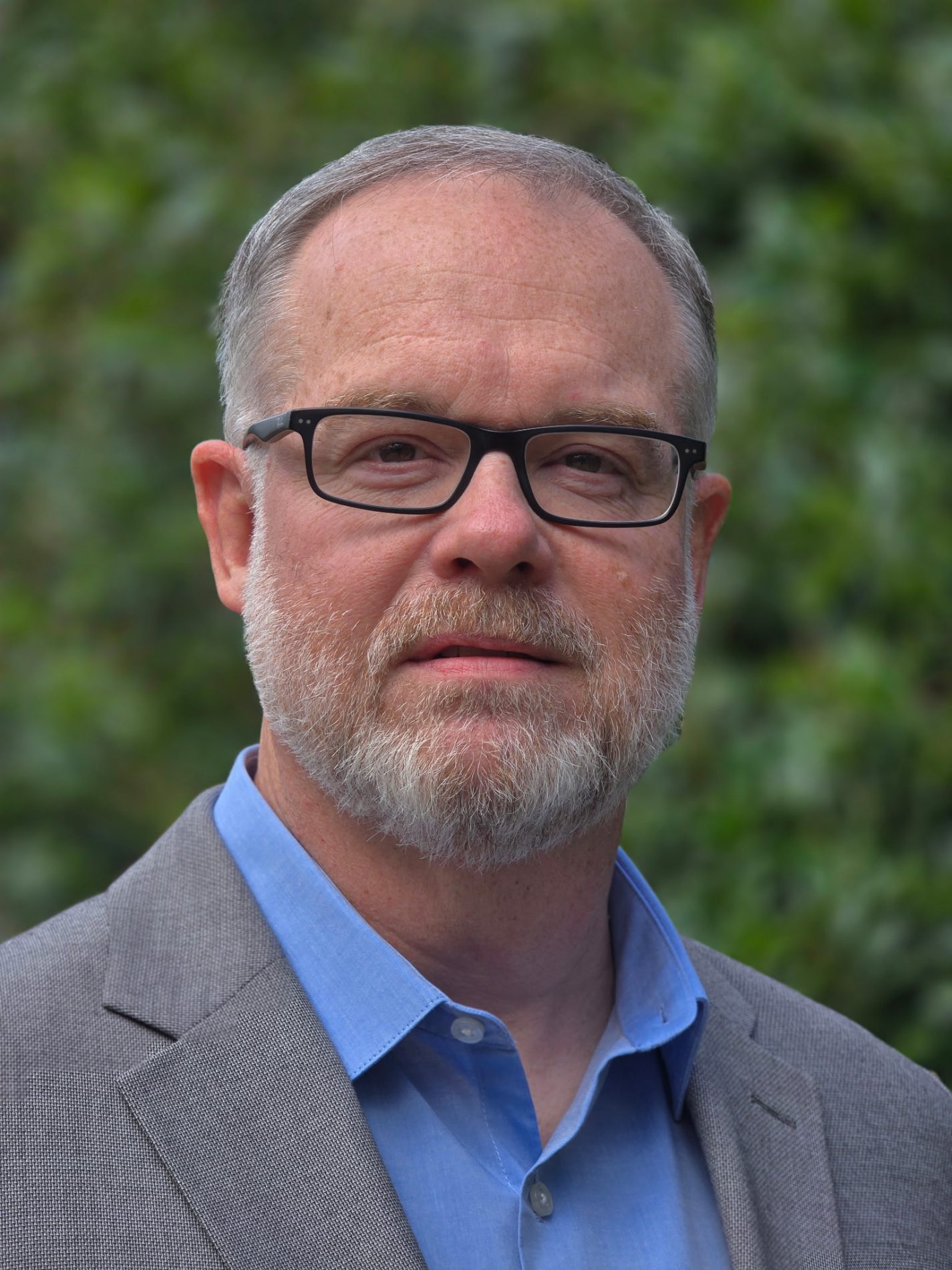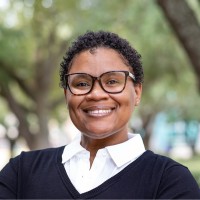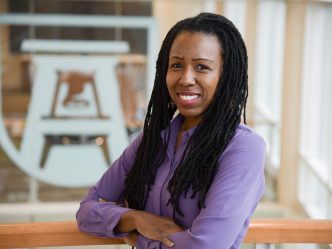By the time Dr. Wayne Hickman became an assistant professor at Augusta University in 2024, he had over 30 years of classroom and administrative experience. With a philosophy that focuses on self-efficacy and relationship building, he’s a natural fit for both Augusta University Online’s Master of Education (MEd) in Instruction program and the Specialist in Education Leadership program.
At the beginning of his career, though, Dr. Hickman didn’t think he would end up educating educators. In fact, he didn’t think he would be an educator at all.

Originally, Dr. Hickman envisioned spending his career in the U.S. Marine Corps. He participated in Reserve Officers’ Training Corps (ROTC) in high school and had his eye on a scholarship to the Citadel, a military college in South Carolina. However, he was forced to change those plans. “Towards the end of my time in high school, my mom got very ill and ultimately died early in my college career,” Dr. Hickman said. “I also didn’t get the Marine Corps scholarship I was wanting, so I turned down the smaller scholarship I received and was just totally adrift.”
Dr. Hickman ultimately decided to stay close to his family, attend college in his hometown and major in accounting. After a rough start, he put his studies on hold and joined the Marines as a reservist. He returned to school a year later more focused, but still unsure of what direction to take. “I still wasn’t interested in teaching,” he remembered. “I changed majors five times before I finally realized that I might really enjoy teaching.”
Inspired by his mother who had been a teacher and the scoutmasters who’d instilled in him a strong sense of civic duty, Dr. Hickman had finally found his calling and was ready to make an impact. Over the next three decades, he found new ways to influence student success and contribute meaningfully at the school and district levels.
The Importance of Strong Student-Teacher Relationships
Dr. Hickman’s first teaching job was teaching current events to sixth, seventh and eighth graders at Burke County Middle School in Waynesboro, Georgia, in 1993. In a market where there were more qualified teachers than open positions, this was a great start for a budding educator — at least in some cases. In other cases, it was the kind of job that would cause any teacher, regardless of level of experience, to seriously reflect. “The principal said, ‘I’ve got 30 atlases and a rolling cart. You’re going to be pushing it into different teachers’ classrooms during their planning period,’” Dr. Hickman explained. “The first class I got was a class of 47 eighth graders. I didn’t have the luxury of asking for more desks, so we had them sitting on the floor and in the aisles.”
However, class size wasn’t the only intimidating aspect about Dr. Hickman’s first assignment. He also didn’t have curriculum standards to work from and, on top of that, students weren’t required to pass current affairs to move on to the next grade. It became very apparent that student engagement was going to be an issue, so Dr. Hickman turned to his mentor and fellow teachers for support. “Through all of that I started learning that the content, as important as it was, had to come second,” he said. “I had to learn how to build relationships with the kids.”
After refocusing his efforts, Dr. Hickman was able to make what many of his students saw as a throwaway class meaningful. In a place such as Burke County, where many families at the time lived in poverty, this student-centered approach had a profound effect on both the students and Dr. Hickman himself.
Making Tough Changes and Creating a Positive School Culture
After teaching social studies for eight years, Dr. Hickman became one of Burke County Middle School’s assistant principals in 2001. In 2006, with a Doctor of Education (Ed.D.), he became the principal of Burke County High School. His relationship-focused philosophy had already served him well, but it was about to be put to a high-stakes test.
That year, the school’s graduation rate was only 54 percent. As a result, it was identified as needing improvement under the federal government’s No Child Left Behind Act.
Dr. Hickman asked the Burke County Board of Education for five years to improve. His first order of business was to change the school schedule, so students could get more out of their education and earn more credits, as well. “We did that through collaborative meetings with the teachers and letting teachers investigate different scheduling styles,” he said. “We eventually settled on what was called a composite schedule.”
Composite scheduling is a mix between traditional and block scheduling, but more complex than the more common modified block scheduling in which some classes are longer but taught for only a portion of a school year while others are shorter and taught all year. It’s like blending a semester-based college class schedule with the yearlong schedule often employed in K-12 schools. The real power of the schedule lies in the fact that the teachers use student outcome data to suggest format changes each year, so that the schedule becomes responsive to student needs.
True to his interpersonal approach, Dr. Hickman ensured that teachers, parents, administrators and students were involved throughout the entire process. The resulting schedule was tailored to Burke County High School’s needs and complemented by collaborative, data-driven efforts led by teachers to support student learning. By 2010, the school’s graduation rate had risen to 78 percent.
Keeping a Passion for Education Alive
After serving as principal, Dr. Hickman served as his district’s director of special education and executive director of operations. However, after a brush with retirement in 2024, he became an assistant professor at AU and reignited his passion for being in the classroom. “In my heart, I had always wanted to teach at the college level one day,” he said. “This is where I see that maybe I’m having the kind of impact I’ve always hoped to have. I’m dealing with teachers and administrators across not just the state, but across the nation.”
No matter what form Dr. Hickman’s impact at AU takes, it comes infused with the successes and challenges of his own diverse career. For example, when he teaches Best Practices in Social Studies Education, his approach is informed by the student engagement issues he faced in that first current events class.
“I do everything from the standpoint of teaching history through inquiry. I base a lot of that on the inquiry design model that came out of the C3 Framework: the College, Career, and Civic Life Framework. I teach that to the teachers early on. It gives you a perfect place to start and you’ve got so much flexibility with how you build it out.”
In addition to empowering teachers to teach an engaging curriculum, Dr. Hickman teaches a variety of Educational Leadership courses for school administrators, with a focus on developing confident, knowledgeable leaders who are equipped to become experts in their field. In fact, his current research project is focused on leadership and self-efficacy. “I’m trying to tie my research on leadership self-efficacy in with administrator and leader mental well-being,” he said. “I’m also really focused on self-reflection practices and metacognitive practices as a part of building that efficacy.”
With this work, Dr. Hickman is expanding his relationship-focused philosophy in an exciting new direction. By exploring how administrators can strengthen their confidence and relationships with themselves, he’s empowering a new generation of educators to build strong, student-centered communities.
Expand Your Own Impact
In AU Online’s MEd in Instruction program, students can choose from 21 different degree tracks, so they can build the efficiency they need to make their own impact. With classes on applying research to instruction, teaching diverse learners and more, this program is designed to not only help teachers learn new skills but also give them the tools to keep learning throughout their careers.
To find out more about AU Online’s flexible programming and degree specialties, request more information today.
Recommended Readings
4 Leadership Styles in Education
Poverty in Schools: How It Affects Learning and School Performance
Self-Care Tips for Teachers
Sources:
EBSCO, Block Scheduling
 Augusta University
Augusta University




